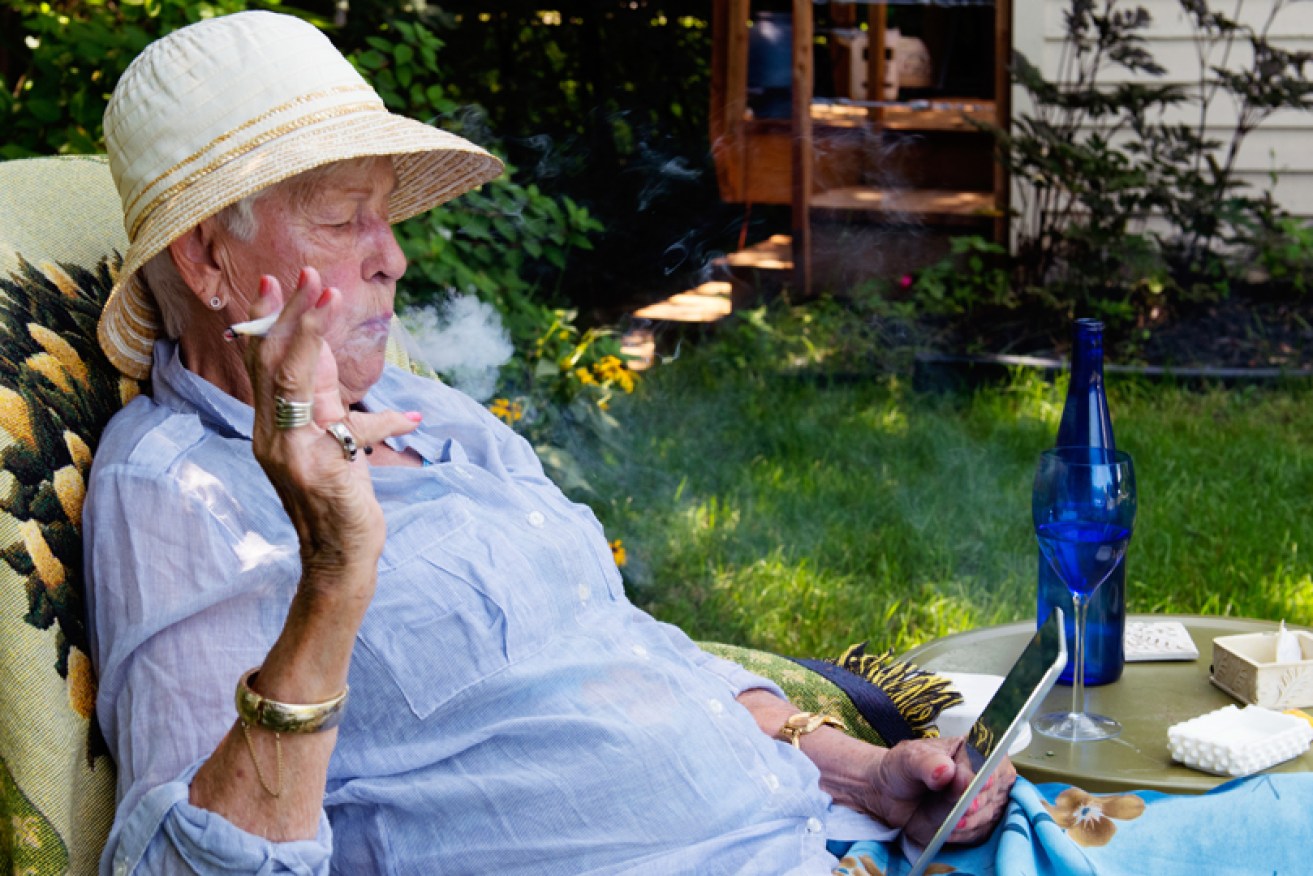The new boom: Why grandma is a stoner


Some baby boomers are living out their end daze in a blue smoke haze. Photo: Getty
If your baby boomer grandmother seems lost in her own world and asks “what?” every time you speak to them, she might not be deaf or getting old – just stoned. It’s a global trend.
While use of cannabis and other drugs are in decline among young people, the generation that gave us free love and flower power are increasingly living their end days in a blue smoke haze.
Between 2003 and 2014, cannabis use among Australians over 50 more than doubled, from 1.6 per cent to 3.5 per cent, according to a 2016 Flinders University study.

More older people are re-living their dope-fired youth. Photo: Getty
In the UK, according to a survey commissioned by the National Health Service, lifetime use of cannabis in the 65-74 age group increased more than sevenfold between 2000 and 2014. This wasn’t about people having an occasional hit – but making a lifestyle choice.
In Canada, dope might be illegal, but economically it is in the mainstream. In 2017, about five million Canadians aged 15-64 spent an estimated $5.7 billion on cannabis, 90 per cent of that was for non-medical purposes. The 45-64 age group spent more on dope than any other age group.
A New York University study published this week also found that one in 10 US citizens aged over 50 got stoned in the past year – an all-time high, boosted by the burgeoning legalisation of the drug.
So what’s happening, man?
Co-author of the Flinders University study, Ann Roche, director of the National Centre for Education and Training on Addiction, wrote a piece for The Conversation that noted there had also been an increase in the amount of drinking and illicit popping of prescription pills among older people.
This was a matter of concern, in part, because “older people are more sensitive to the toxic effects of substances such as alcohol. This is because ageing reduces the body’s capacity to metabolise, distribute, and excrete alcohol and drugs”.
Older people are also, Professor Roche wrote, more likely to have existing physical or psychological conditions, or to take medicines that may interact with alcohol and drugs. This could lead to falls and other injuries, and exacerbate a range of age-related conditions, such as diabetes and cardiovascular disease.
But she also noted that not all ageing enthusiasts were misusing drugs and alcohol. Her key recommendation was that “health care services and the aged care sector need to work better together to prevent problem substance use among older people”.
But it makes me smarter, kids
For older people, though, research suggests cannabis has a range of benefits.
Last year, a study from the University of Bonn, published in Nature Medicine, found the drug impaired memory and learning in young mice (as it does in young people) – but appeared to reverse age-related cognitive declines in older mice.
In February, research from Israel’s Ben-Gurion University of the Negev found that cannabis offered a far safer alternative to opioids for the treatment of chronic pain.
But are most older people getting stoned to improve their brain function or help with their arthritis?
There is an already large body of literature online pondering that question – from How Seniors Joined the Cannabis Craze published in the New Yorker in April to Is cannabis the answer to older people’s booze problems? published in March in The Guardian.
Not addiction, nostalgia
Dr Dan Woodman, a professor of sociology at the University of Melbourne, said: “The answer is probably a mix of things. Certainly some people are taking it for pain relief: this is an ageing cohort. But this is also the generation of the counter culture.
“A lot of them got very straight along the way, but this is still the way they think of their lives, and maybe life is giving them the chance to return to some of their earlier loves.”
Dr Woodman said there was much research showing that those experiences from your teens and 20s are formative, particularly culturally.
“A lot of people find ways to keep in touch with that time of their lives.”
Andrew Fuller is a clinical psychologist specialising in wellbeing, and a fellow of the Department of Psychiatry and the Department of Learning and Educational Development at the University of Melbourne.
He sees, on the one hand, cannabis use as a way of keeping ageing anxieties at bay.
“I’m not necessarily saying it’s the best way to do it,” he said. “But with a sense of the shortening days, there’s the drive to maximise pleasure.”
He points to the use of online dating agencies, where “the biggest clientele is in the age range of 60-plus. So ‘grab it while you can’ seems to be a part of it”.








